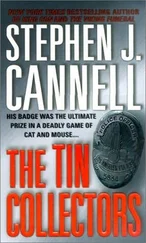Emily had promised to leave Veritech in June. She and Jonathan talked endlessly about finding an apartment in Cambridge, or simply buying a house. They had a real estate agent, and no price limit. Therefore Jonathan felt just right as he diagrammed his new Fast-Tracking system on the whiteboard. At last he was getting to the crux of the matter—the new technology that ISIS needed. He loved Emily, and he thanked her silently, although he did not mention her name in his visionary presentation. There was no need. There was no time. Oh, life was sweet.
Dazzled, the others watched Jonathan unveil his new plans. Always a little slow, Dave asked about the legal and ethical implications of the idea, while Jake and Oskar leapfrogged ahead with technical questions.
“Now this is interesting,” Oskar said, bestowing his highest praise.
As for Orion, he felt hopeful for the first time in months. Instead of lecturing about release dates, and talking up ISIS products, Jonathan was presenting new ideas. Instead of trying to shut down criticism, he was encouraging debate. In the past he’d sacrificed quality for speed and talked incessantly about market share. Now he proposed building a new system from scratch. Orion saw the plan opening, blossoming like fireworks trailing sparks and smoke in the night sky. They would tag and trace every touch on every piece of data, capture and collect what had been ephemeral. What possibilities for research! What challenges for new analysis! He understood the idea immediately, and the scribbles on the whiteboard were not scribbles to him, but poetry. The design Jonathan unveiled was that elegant.
Aldwin asked, “How will we staff this? Start a new group?”
“Yeah,” said Jonathan. “But we’ll keep the project confidential. No analyst or investor input! And we need somebody to spearhead it.”
“I will!” Orion surprised himself with his alacrity. “I’d like to,” he amended.
Jonathan smiled. It was not his fault that his smile looked so mischievous, that his blue eyes sparkled and the corners of his mouth curled as though anticipating some particularly delicious meal. He had always known his old friend would come around. Turn away long enough, and people think you have forgotten them entirely. Show your displeasure, and first they hate you, and then they despair, and finally, scarcely acknowledging it to themselves, they miss you. Change the game again, to see if they follow. The best ones can. The smart ones always do.
“You would have to leave what’s left of the Lockbox group,” Jonathan told Orion. “Would you be willing to do that?”
God, yes, Orion thought. “Definitely,” he said aloud.
“Maybe we could work something out,” Jonathan said. “I think that you’d be great.”
Such faith in him! For long months Orion’s efforts had been ad hoc, troubleshooting substandard code. But to start up this new Fast-Tracking venture, to head his own group, design and build a system to his own standards—to work with autonomy! The idea thrilled him. Orion was moved by Jonathan’s trust, and his gesture to restore their friendship. Jonathan had not given up on him; Jonathan still saw him as one of the founders.
“You would report directly to me,” Jonathan told Orion, “so I can keep an eye on you.”
Orion chose to take this as a compliment. He took this, as intended, as a formal job offer, and he nodded in agreement. He accepted.
Perhaps in the old days, men built their reputations, and then their fortunes. Orion had made his fortune first. He had not designed algorithms like Oskar and Jake, or established administrative systems like Dave and Aldwin, or sold Lockbox and ChainLinx to the first clients as Jonathan had, flying all night to charm his way into Disney and CNN when he was still a graduate student with one suit. Too diffident, too dreamy, too cautious, too much a programmer, Orion was worth over twenty million dollars even in this depressed market, but he had not been well employed. He did not sit on the executive board. He was not vice president of anything. Heading a new group, he would step up. He had a chance to justify his wealth, to prove that his success was more than accidental, to become a self-made man.
Meet me downstairs,Orion e-mailed Sorel as soon as he returned to his desk.
“I’m right here.” She was standing behind him, watching him type.
“What happened?” she asked him as they waited for the elevator.
“Shh!”
She looked at him questioningly. “What?”
“You won’t believe this …,” he told her in the elevator, but just then someone else joined them. Somebody from Marketing, ALOK on his badge. Orion could not keep track of the new hires anymore, nor did these recruits know him. Could they have any idea, for example, that Orion had named their company over beers in Somerville so many months ago? Jonathan said then that he wanted some kind of acronym for “Internet Security System,” and Orion had remembered his fourth-grade unit on Egyptians and his report on Isis—baker, spinner, weaver, daughter of the Earth and sky. This new guy, Alok, had no idea. There were no historical inscriptions at ISIS, no steles recording early triumphs. No hieroglyphs with bird-headed vulture capitalists and the four founders arrayed like boy kings on the elevator’s smooth gray walls.
The doors parted, and Orion ushered Sorel through the lobby with its mobile of oblong mirrors, and its revolving doors of thick, rubber-edged glass.
Into the fresh spring air they hurried, away from ISIS. Sorel thought he wanted to buy lunch at the deli at One Kendall Square, but Orion saw too many ISIS worshippers there. He ushered her into the furniture store Pompanoosuc Mills, vast and airy, filled with handcrafted Shaker furniture—or rather the kind of furniture Shakers would have built if they had softened on celibacy and simplicity and fashioned bunk beds and glass-fronted china cabinets.
Sorel followed him to the back of the store where they admitted to the saleswoman that they were just looking, that they would indeed let her know if they had any questions about woods or pricing, and settled down together, pulling up two spindle-backed chairs to a cherry dining-room table.
Orion said, “Jonathan’s got a new plan.”
“He needs one.”
“Just listen!” Orion watched her face as he told her. He watched the way she sucked her lower lip, appreciating the new scheme immediately, savoring the news.
“You must be joking!”
“Wait. There’s more. I’m going to be the team leader of the Fast-Track group.”
“You?”
“What’s wrong with me?” He was a little offended. “Don’t you think I can?”
“Of course you can. I just wonder why Jonathan likes you now.”
“I think … it’s just … we go way back,” Orion struggled to explain. “I think when you go that far back with someone, the friendship never disappears completely, and sometimes, eventually, the relationship regenerates.”
“Like a starfish growing a new arm,” said Sorel.
“Don’t you think sometimes it works that way?”
“I don’t trust him, I’m afraid.”
“You don’t know him as well as I do,” said Orion.
“That’s why I’m in a better position to judge.”
“You’re a cynic,” he said.
“Probably.”
“I think with some people you have shared a history, and it’s very deep.”
“He says one kind word. You turn to mush.”
“Kind word? He’s giving me this huge new project.”
“The project sounds brilliant—if you can pull it off.” Sorel tilted her chair back. “I’m afraid he’s setting you up.”
“No,” Orion said. “He wouldn’t do that. This new group is real, and he wants me to run it. He’s finally found a way to use me.”
Читать дальше












